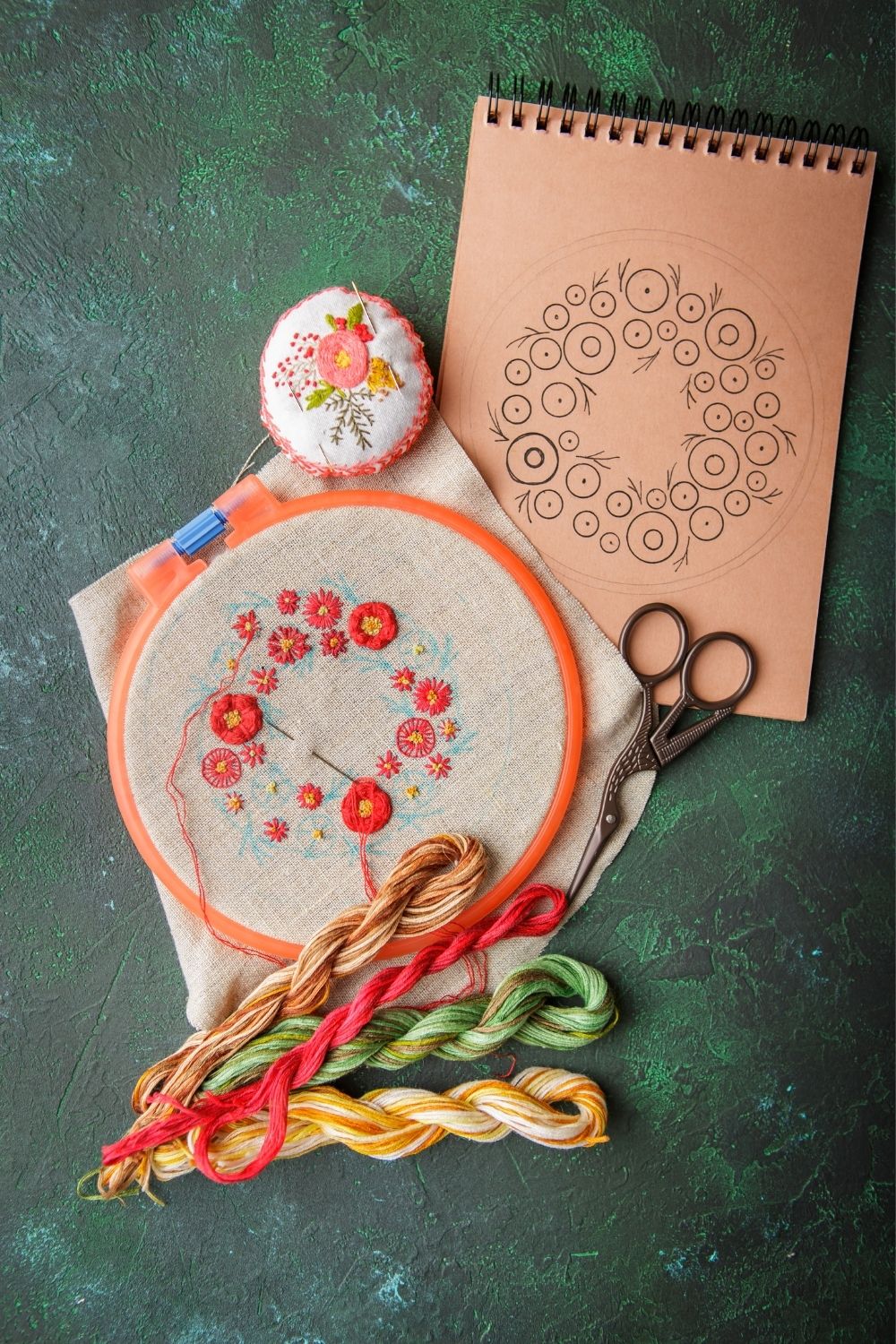Learn how to make a French Knot with our embroidery tutorial with step-by-step instructions. You can watch the video or see the photos below. It’s is an embroidery stitch made with thread that creates a decorative knot on your fabric. This stitch is perfect for making an eye for a part of a face or if you need any embroidered dots.
In this article we’ll cover:
- What is a French Knot?
- Video Tutorial
- Step-by-step Photo Tutorial
- Tips for the Perfect French Knot
- What’s the Difference Between a French Knot and a Colonial Knot?
What is a French Knot?
This knot is a decorative embroidery stitch that involves wrapping your thread around your needle several times then pushing the needle back through your material in the same spot. This results in a relatively large, circular knot that is the perfect eyeball when you’re making a felt animal or embroidering a face on a project. Many French knots could be arranged in a pattern to make a starburst, geometric shape, rain drops, or decorative stitches around embroidered plants — the possibilities are endless, and this is a super helpful technique to have in your embroidery stitch library.
Video Tutorial
Step-By-Step Pictures
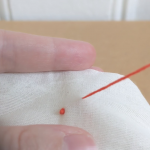
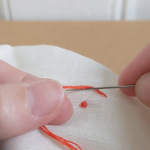
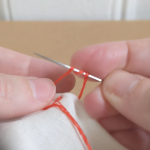
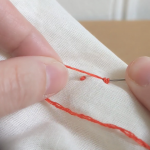

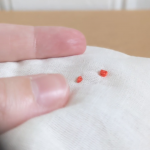
Tips for Creating the Perfect Knot
If you follow the steps above, you’ll come out with a perfect knot. If you’re running into any issues (like pushing your needle through to have the knot completely disappear), make sure to follow these tips:
- In Step 2 above, make sure your needle is in FRONT of the thread
- Make sure your thread is held taut in Step 4
- In Step 4, make sure you’re pushing your needle NEXT to where you emerged, not directly back into the same location
- To make your French knot bigger, wrap your thread an additional time and/or use more threads
- To make your French knot smaller, wrap your thread less times, and/or use less or smaller thread(s)
- Finally, practice on scrap fabric several times before making the knot on your project — it takes some practice to get it right
What’s the Difference Between a French Knot and a Colonial Knot?
Both a French knot and a colonial knot are decorative embroidery stitches that make a round circular knot with thread in your fabric. However, the colonial knot sits a little higher out of your fabric than the French knot, making it a little more prominent. Otherwise the finished results looks very similar. To make a colonial knot, instead of wrapping your thread around the needle like the French knot, you wrap it in a figure 8 pattern instead. Try them both to see looks what looks best on your project.
Never miss a sewing project or tutorial
Want to get my best crafty tips & tutorials to create handmade projects and heart-melting gifts? All delivered to you in a weekly-ish email, along with exclusive offers. Pop your email in the box below and hit Subscribe. Unsubscribe anytime. See my Privacy Policy for details.
Oh! And, you’ll also get 10% off your next pattern purchase.

